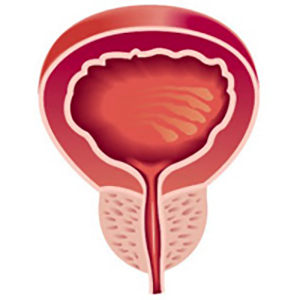Variation of inflammatory indexes in patients with chronic abacterial prostatitis treated with an herbal compound/extract

Accepted: May 11, 2023
All claims expressed in this article are solely those of the authors and do not necessarily represent those of their affiliated organizations, or those of the publisher, the editors and the reviewers. Any product that may be evaluated in this article or claim that may be made by its manufacturer is not guaranteed or endorsed by the publisher.
Authors
Introduction: Inflammation is a highly prevalent finding in the prostate. Men with inflammation have higher IPSS score and increased prostate size. For men with prostatic inflammation, there is a significantly increased risk of developing acute urinary retention and the need of a surgical approach to the disease. Some laboratory tests (i.e. fibrinogen, C-reactive protein), can play a role in identifying patients at greatest risk of complications and adverse outcomes after surgery. There have been several experiences exploring the role of nutraceutical approach to the prostate inflammation. Aim of our study were to describe the variation in symptoms and inflammatory indexes in men affected by chronic abacterial prostatitis, treated with an herbal extract containing Curcuma Longa 500 mg, Boswellia 300 mg, Urtica dioica 240 mg, Pinus pinaster 200 mg and glycine max 70 mg. Materials and methods: A prospective multicenter study was conducted from February 2021 and March 2022. One hundred patients, with a diagnosis of Chronic Prostatitis were enrolled in a multicentric phase III observational study. They were treated with the herbal extract, one capsule per day, for 60 days. No placebo arm was included. In each patient, inflammatory indexes, PSA, prostate volume, IIEF-5, PUF, uroflowmetry (Qmax), IPSS-QoL, NIH-CPPS were registered and statistically compared at baseline and at the follow up visit. Results: The variation obtained on the inflammation indexes showed a global improvement after treatment, including the PSA reduction. We also recorded a significant improvement on IPSS-QoL, NIH-CPPS, PUF and Qmax scores. Conclusions: The herbal extract considered in our study may represent a promising and safe therapeutic agent leading to a reduction of inflammation markers, and could be used in the treatment of prostatitis and benign prostatic hyperplasia.
How to Cite

This work is licensed under a Creative Commons Attribution-NonCommercial 4.0 International License.
PAGEPress has chosen to apply the Creative Commons Attribution NonCommercial 4.0 International License (CC BY-NC 4.0) to all manuscripts to be published.

 https://doi.org/10.4081/aiua.2023.11441
https://doi.org/10.4081/aiua.2023.11441



